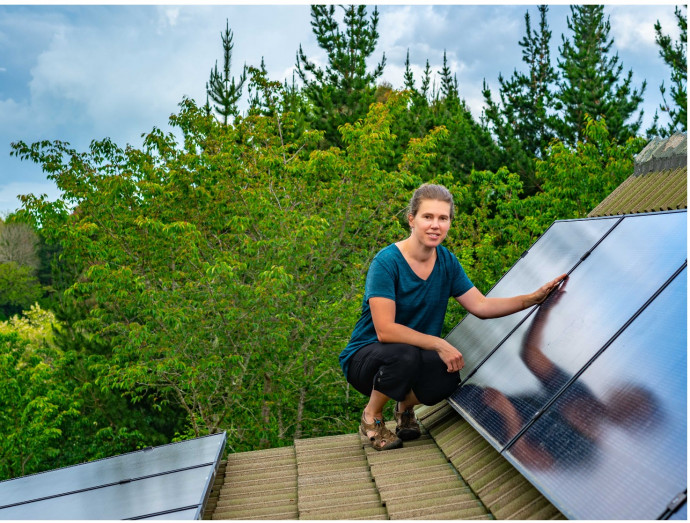Homes harnessing sunshine: What drives the value of solar cells in Aotearoa?

Dr Yvonne Matthews, of the National Institute of Water and Atmospheric Research (NIWA) has been awarded a Marsden Fund Fast-Start grant to understand what drives people and communities to adopt solar cell technologies
Published on 3 Whiringa-ā-rangi November 2022
The use of solar cells, which convert sunlight to electricity, has increased dramatically worldwide in the last 4-5 years. Solar energy is key to reducing Aotearoa’s emissions, as flagged by the Climate Change Commissions’ roadmap of 2021. Despite this, the adoption of solar technologies remains slow in Aotearoa relative to other countries – only 0.47 % of our total power is solar-derived. The future of energy will likely include solar technologies, so it is important to understand what their uptake will look like so we can ensure that we get the best out of them. To get there, we need to understand what motivates people when it comes to increased solar adoption. This prompts all sorts of key questions: What drives individuals and communities to go solar? Do current energy policies enhance or dim solar adoption? How will adoption be equitable? One thing is clear: if we want to achieve our climate goals, more research into solar adoption is essential.
This Marsden Fund Fast-Start project, headed by Dr Yvonne Matthews, will dive into the motivations and constraints of solar adoption by analysing data from solar users and applying leading-edge behavioural economics models to understand how people and communities make the decision to adopt, and what drives people’s energy-related behaviours once they make the leap to solar. The behaviours found will be analysed in a pragmatic way – realising decisions are often made through combinations of a person’s prior experiences and economic realities.
The team will engage with participants from the community, such as recipients of the Māori Housing Renewable Energy Fund, giving a specific Māori-based perspective on solar energy implementation. An interactive tool will be developed, which will allow individuals to explore costs, energy management strategies, complementary technologies, and potential solar policies. The results of this mahi can contribute to important fields of energy economics, behavioural economics, and energy policy, making the future seem bright indeed.
